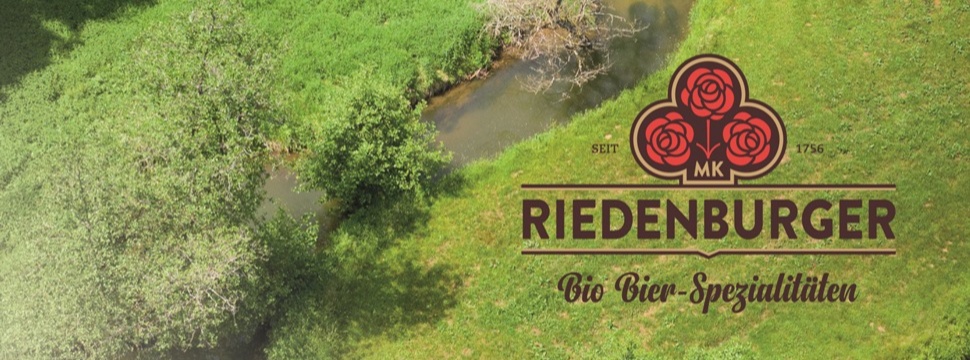Climate-neutral company: Riedenburger Brauhaus reaches milestones in its climate protection strategy
News General news
After surveying all site-related greenhouse gases from the 2021 business year, Riedenburger Brauhaus has created its ecological footprint and compensated for unavoidable emissions. With the status of "climate-neutral company", the organic brewery has already reached the second milestone of its climate protection strategy.

"As a purely organic business, climate protection is particularly close to our hearts. For this reason, we have developed a milestone plan to ensure that we continuously reduce greenhouse gases and take responsibility for emissions that cannot be avoided," explains head brewer Maximilian Krieger. The milestone plan includes four medium-term climate protection goals: from the annual determination of the ecological footprint, to the gradual offsetting of emissions via climate protection projects, to energy-efficient new construction. The long-term goal is to continuously optimise operational processes and climate targets through measures to avoid, reduce and compensate for greenhouse gases.
In cooperation with the climate protection partner myclimate in Reutlingen, all site-related emissions that occurred in 2021 were collected and evaluated. Based on the internationally recognised standard "The Greenhouse Gas Protocol" (GHG Protocol), 736 tonnes of greenhouse gas were determined and offset. The climate protection project "Ceramic Filters for Clean Drinking Water in Laos" supported by the brewery produces ceramic water filters locally and thus enables the rural population in Laos to have safe access to clean drinking water. Without such filters, Laotians would have to continue using firewood from unsustainably managed forests to disinfect water by boiling it. Reduced deforestation binds carbon dioxide and protects local forest ecosystems.
Maximilian Krieger explains why Riedenburger Brauhaus supports a climate protection project in Asia as follows: "As a purely organic company, we only source organic raw materials. Organic farming makes an important contribution to climate protection through organic fertilisation, because the production of fertilisers and pesticides used in conventional agriculture is associated with high resource and energy consumption and the emission of climate-impacting carbon dioxide. In addition, organic farming measures permanently increase the humus content of the topsoil, which means that higher amounts of carbon dioxide are stored and removed from the atmosphere. Unfortunately, there is no official certification for these savings yet and therefore we have decided to additionally support a global climate protection project."
The next step is to make the entire company climate neutral. At the turn of the year, the brewery will collect all emissions (including raw materials, packaging and delivery) and, through compensation, make the entire company and all its beers and lemonades climate neutral.










